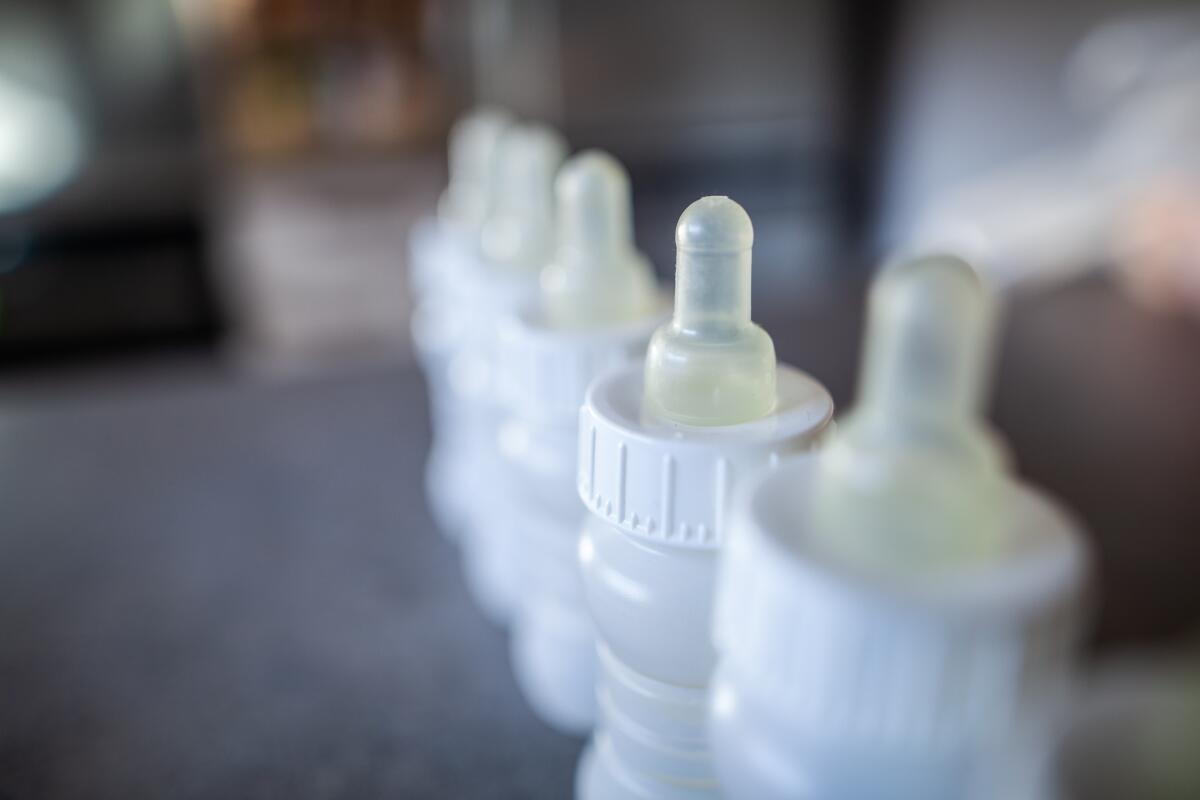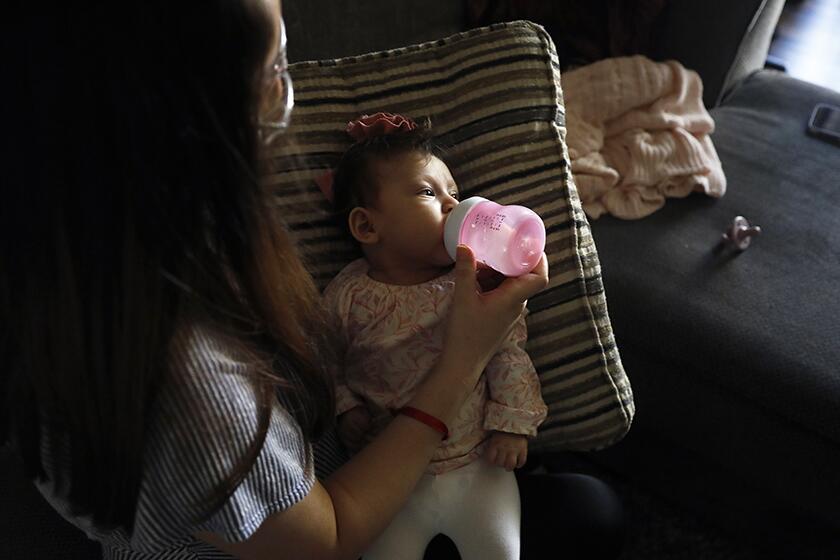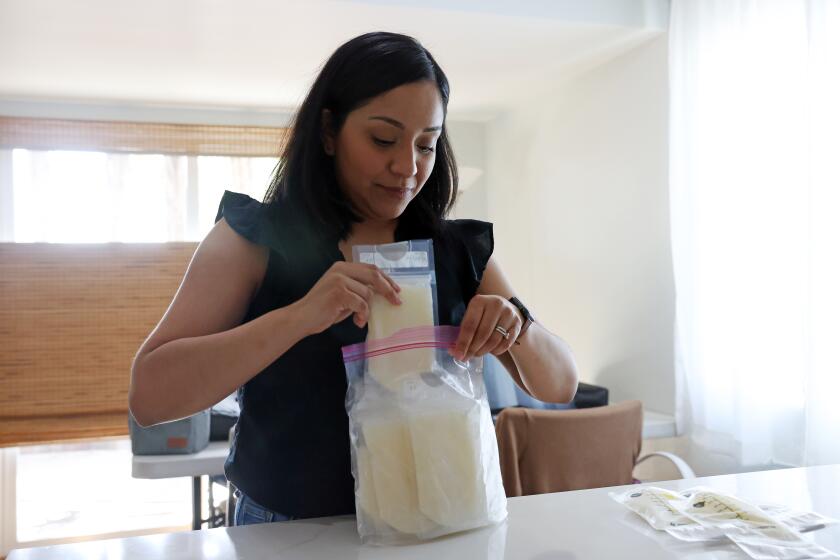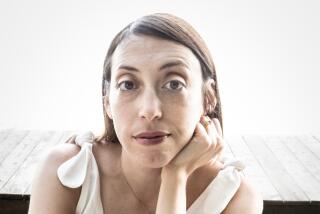Op-Ed: I didn’t plan to feed my baby formula — but I’m so glad I did

I’m 24 weeks pregnant, staring down a national formula shortage, just hoping it works itself out before the new baby arrives. My first child was born in April 2020, less than a month into COVID-19 lockdown. He arrived 3½ weeks early, starved out by my preeclampsia (a pregnancy complication that can prevent blood flow to the placenta, disrupting nutrient delivery to the fetus). He weighed just 4 pounds and 5 ounces, and he broke out of my womb in search of food.
He got it immediately, whisked off to the neonatal intensive care unit and pumped full of formula while I recovered from a thank-God-for-modern-medicine birth. I lost more than 3 pints of blood after the delivery, enough to fill two wine bottles — enough too, it turned out, to decimate my milk supply.
I had been planning to breastfeed. I am the type of mom who typically does — educated, affluent, with a flexible job and friends who breastfed their kids. My baby was too small to latch, so I spent weeks pumping constantly, hoping my milk supply would come in by the time he was big enough to hop on the boob. I FaceTimed lactation consultants, I took supplements, I bought a breast massager that looks like a weird little vibrator. At no time did any of the medical professionals I encountered suggest that breastfeeding might not be for me.
The shortage of a product vital to feeding America’s babies is another sign of a nation that fails to prioritize the health of women and children.
All the while, my husband fed the baby. The three of us woke up together every night and sat facing one another at our stations, eating and feeding and pumping.
Six weeks in, after a battle with clogged ducts reduced my low supply to a trickle, I decided to wean off the pump. I’d been crying daily, feeling like a failure, beset by anxiety and self-doubt, not to mention the physical pain, wallowing in a bath with a fever, sore breasts and a couple of ounces of breast milk in the fridge. Once I made up my mind to stop, all of this vanished.
There are countless studies on the positive effects of breastfeeding, but when you drill down on them, the known benefits are modest. Many studies measure parental traits (socioeconomic status in particular) more than anything else, the effects shrinking, and sometimes evaporating when subjected to sibling comparisons.
For example, those extra IQ points purportedly gained by breastfeeding, which haunted me as the milk drip-dripped from my body? They disappear when you control for maternal intelligence. And yet we keep hearing about the convincing science of Breast is Best, and it can be used to guilt lactating parents, to make us feel like we must breastfeed to prove that we love our children.
For once, I’d like to see a study on the benefits of not breastfeeding, of relying on the miracle product of baby formula. In my experience, these have proved quite tangible. Maybe it’s selfish and unmotherly to prioritize one’s own well-being, but surely the mental health of a child’s parents has some effect on his development. It must matter as much as reducing the risk of ear infection. My baby had a happier, more present mother when I turned off the pump.
Lactating parents across California are pitching in to help feed other people’s children during the ongoing national baby formula shortage.
By that time, I also had a partner who’d been an equal participant in his son’s care and feeding from day one. We developed good habits that worked for our family, and two years later, we still have an equitable distribution of parenting duties. Our marriage is, incredibly, stronger than it was before having a baby during a disastrous pandemic. Maybe this would have been true even if I’d breastfed — we have the golden combination of nearby family and paid child care, so we are insulated from the worst stressors of these early childhood years — but I suspect the shared feeding made a difference.
Even small differences have an effect on a population level (see, e.g., every breastfeeding study) and if formula feeding has any measurable impact on parental happiness and marital stability, the benefits for children could be significant. I’m all for breastfeeding if you’re willing and able — I’d even like to try it this time around, just to have that experience. But I’m no longer willing to suffer while ignoring the blessings of formula, for both me and my family.
Steph Cha is a writer in Los Angeles. Her most recent novel is “Your House Will Pay.”
More to Read
A cure for the common opinion
Get thought-provoking perspectives with our weekly newsletter.
You may occasionally receive promotional content from the Los Angeles Times.












